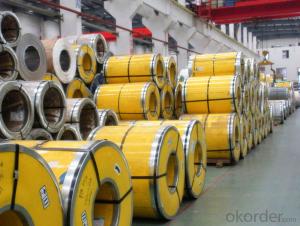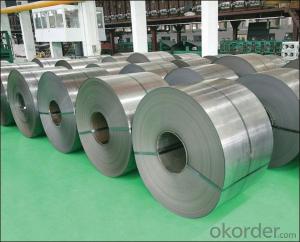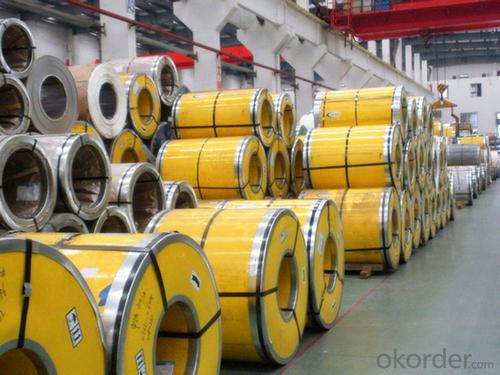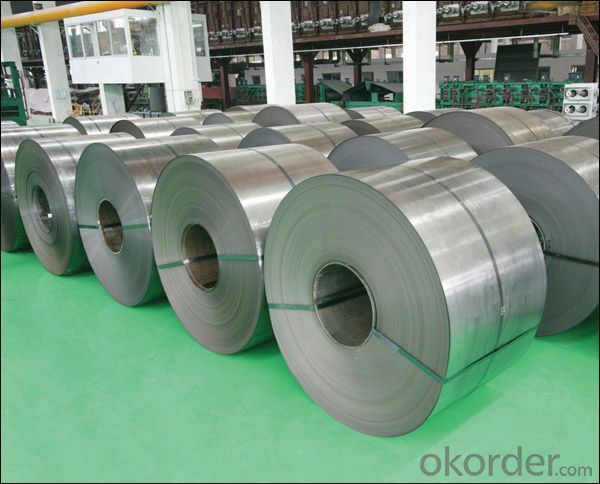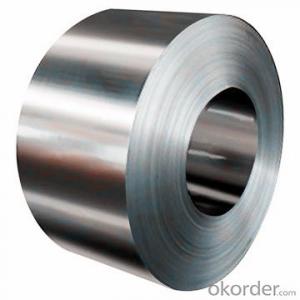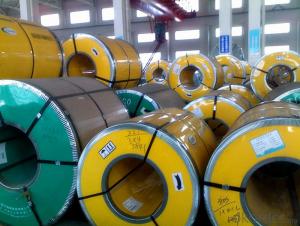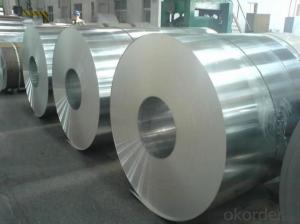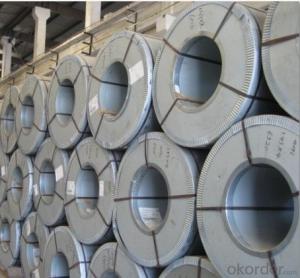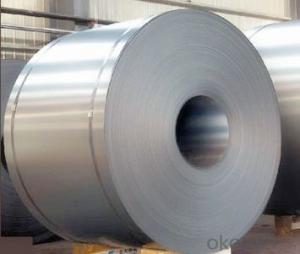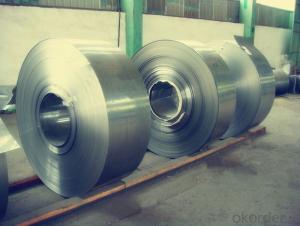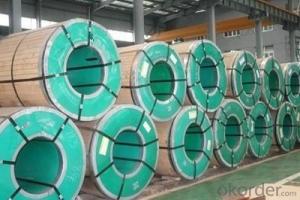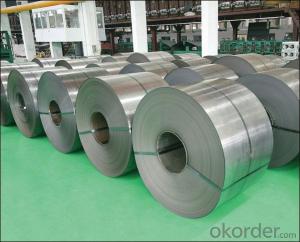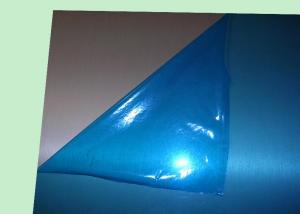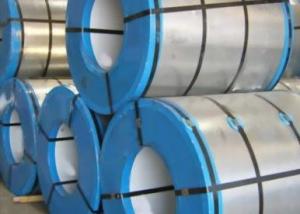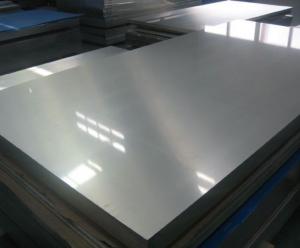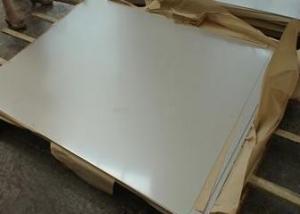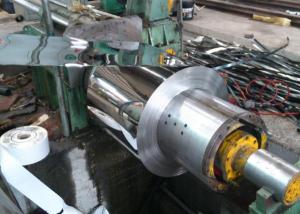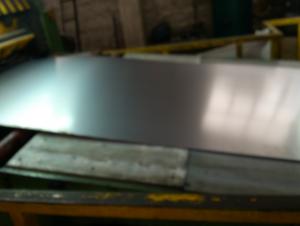Hot Rolled Cold Rolled Stainless Steel Coil and Sheet 201 /202 High Quality
- Loading Port:
- China main port
- Payment Terms:
- TT OR LC
- Min Order Qty:
- 200 m.t.
- Supply Capability:
- 4000 m.t./month
OKorder Service Pledge
OKorder Financial Service
You Might Also Like
201 Stainless Steel Coil Hot Rolled Cold Rolled
201 Stainless Steel is a new kind of Austenite stainless steel by used Mn, N replace Ni. The steel has good corrosion resistance and hot / cold processing performance, instead of 304 stainless steel products for used in the not high of corrosive environment, such as indoor, inland city outdoor etc.
1. Product detail
Product name: 201 Stainless Steel Coil
Thickness: 0.2mm to 1.5mm
Technical: Cold Rolled
Width: 10mm to 1240mm
Type: 200 Series
Length: As customer's requested
Standard: JIS, SUS
Finish: BA, 2B, 8K, NO.3, NO.4, HL
MOQ: 200 Metric Tons
2. Specialty and Applications
Steel Type | 201 Stainless Steel Coil |
Specialty | -- After solid solution treatment has high strength, toughness and wear resistance; Economical, low Ni components to ensure the cost advantage |
Applications | -- 201 Stainless Steel mainly used in decorated tube, Industrial tube and other shallow tensile productSuch as shallow processed pan, Indoor stair handrail, elevator etc |
3. Chemical Composition (Unit: WT %)
Specification | C | Si | Mn | Ni | Cr | other |
201 Stainless Steel | ≤0.015 | ≤1.00 | 7.0-10.0 | 3.5-5.5 | 14.0-16.0 | N ≤ 0.20 |
4. Mechanical Property
Specification | YS (Mpa) | TS (Mpa) | EL(%) | HV | REMAK |
201 Stainless Steel | 426 | 880 | 52 | 224 | 1.0t |
304 Stainless Steel | 285 | 710 | 58 | 165 | 1.0t |
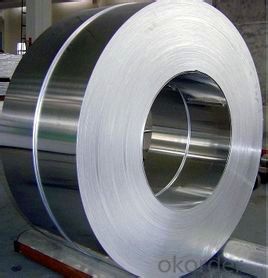
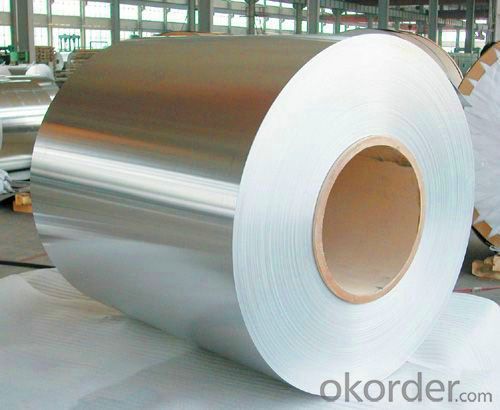
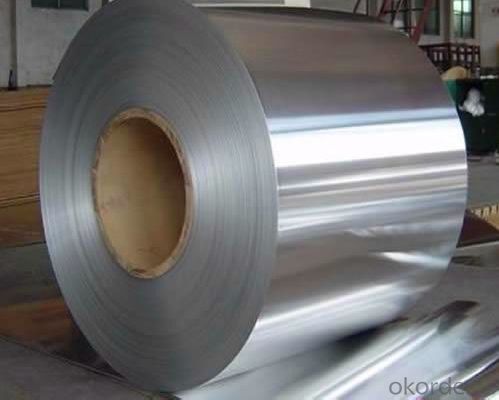
- Q: How are stainless steel strips different from galvanized steel strips?
- The composition, appearance, corrosion resistance, and uses of stainless steel strips and galvanized steel strips are different. To start with, their composition differs significantly. Stainless steel strips primarily consist of iron and have a higher percentage of chromium, which provides excellent corrosion resistance. In contrast, galvanized steel strips are produced by coating regular steel with a layer of zinc, which acts as a protective barrier against corrosion. Moreover, their appearance sets them apart. Stainless steel strips have a shiny, silver-like look due to their high chromium content. Conversely, galvanized steel strips have a duller, matte finish owing to the zinc coating. Regarding corrosion resistance, stainless steel strips excel in this aspect. They can withstand corrosion and rust, even in harsh environments or when exposed to moisture. While galvanized steel strips also offer decent corrosion resistance, they may eventually corrode or develop rust if the zinc coating becomes damaged or wears off. Lastly, their uses can vary greatly. Stainless steel strips find extensive application in areas where corrosion resistance and durability are crucial, such as the construction of kitchen appliances, medical equipment, automotive parts, and decorative purposes. On the flip side, galvanized steel strips are commonly employed in outdoor applications or environments where corrosion resistance is necessary but not critical, such as roofing, fencing, and electrical conduits. To summarize, stainless steel strips and galvanized steel strips differ in terms of composition, appearance, corrosion resistance, and applications. Stainless steel provides superior corrosion resistance and is ideal for applications that require durability. In contrast, galvanized steel is frequently utilized in outdoor settings where corrosion resistance is necessary but not of utmost importance.
- Q: How do stainless steel strips compare to other materials like aluminum or carbon steel?
- Stainless steel strips have distinct advantages over other materials like aluminum or carbon steel. They are highly resistant to corrosion, making them suitable for various environments. Additionally, stainless steel offers superior strength and durability, ensuring longevity and reliability. Moreover, stainless steel is non-reactive, making it ideal for applications where hygiene and cleanliness are crucial. While aluminum may be lightweight, it lacks the same level of strength and corrosion resistance as stainless steel. On the other hand, carbon steel may be stronger but is susceptible to rust and corrosion. Overall, stainless steel strips outperform both aluminum and carbon steel in several key aspects.
- Q: Are 111 stainless steel strips suitable for heat exchangers?
- Yes, 111 stainless steel strips are suitable for heat exchangers. They possess excellent corrosion resistance, high thermal conductivity, and good strength, making them ideal for heat transfer applications in heat exchangers.
- Q: Can stainless steel strips be used in automotive body panels?
- Yes, stainless steel strips can be used in automotive body panels. Stainless steel is known for its durability, corrosion resistance, and strength, making it suitable for automotive applications. It can withstand harsh weather conditions, resist rust and corrosion, and provide a sleek appearance to the vehicle. Additionally, stainless steel's high strength-to-weight ratio makes it an ideal choice for body panels as it can provide structural support while keeping the vehicle lightweight.
- Q: Can stainless steel strips be used for kitchen appliances?
- Yes, stainless steel strips can be used for kitchen appliances. Stainless steel is a commonly used material for kitchen appliances due to its durability, resistance to corrosion, and easy cleaning properties. Stainless steel strips can be used for various applications in kitchen appliances such as handles, trims, or decorative elements.
- Q: What are the common uses of stainless steel strips in the pharmaceutical industry?
- Due to their unique properties, stainless steel strips find extensive use in the pharmaceutical industry. They are suitable for a variety of applications, and some common uses include: 1. Packaging: Stainless steel strips provide a safe and hygienic barrier, protecting pharmaceutical products like tablets, capsules, and powders from external contaminants, moisture, and light. 2. Sterilization containers: Stainless steel strips are vital in fabricating sterilization containers, which are essential for the sterilization process in pharmaceutical manufacturing. These containers effectively sterilize and maintain medical instruments, equipment, and supplies in a sterile condition. 3. Mixing and blending equipment: Stainless steel strips are used to construct mixing and blending equipment, such as containers, tanks, and vessels. These equipment ensure efficient and consistent mixing of ingredients in pharmaceutical formulations. 4. Conveyor systems: Stainless steel strips are commonly employed in constructing conveyor systems, extensively used in pharmaceutical manufacturing for transporting raw materials, intermediate products, and finished goods. The corrosion-resistant nature of stainless steel guarantees cleanliness and purity during the manufacturing process. 5. Cleanroom applications: Stainless steel strips are utilized in cleanrooms, critical to maintaining a controlled environment free from contaminants. They are used to fabricate cleanroom furniture, equipment, and fixtures, ensuring a hygienic and durable solution that withstands frequent cleaning and disinfection. 6. Equipment and machinery components: Stainless steel strips are employed in manufacturing various components for pharmaceutical equipment and machinery, such as pumps, valves, fittings, and connectors. The high strength, corrosion resistance, and ease of fabrication of stainless steel make it a preferred material in these applications. In summary, stainless steel strips are vital in the pharmaceutical industry due to their corrosion resistance, durability, cleanliness, and ease of maintenance. These properties make stainless steel strips an ideal choice for various applications, ensuring the safety, quality, and efficacy of pharmaceutical products.
- Q: Are 111 stainless steel strips suitable for electrical conductivity applications?
- 111 stainless steel strips are not suitable for applications requiring electrical conductivity. While stainless steel is renowned for its corrosion resistance and strength, it does not possess good electrical conductivity. For tasks necessitating electrical conductivity, metals such as copper, aluminum, or silver are preferred due to their superior conductivity properties.
- Q: What are the typical tolerance levels for stainless steel strips?
- The typical tolerance levels for stainless steel strips can vary depending on the specific industry and application. However, common tolerance ranges for thickness can be around +/- 0.001 to 0.005 inches, for width it can be +/- 0.010 to 0.020 inches, and for length it can be +/- 0.020 to 0.040 inches. These ranges may vary further based on the specific requirements and standards set by manufacturers and customers.
- Q: What is the cost of stainless steel strips?
- The cost of stainless steel strips can vary depending on factors such as the grade, thickness, width, and quantity needed. It is best to consult with a supplier or research current market prices for an accurate cost estimate.
- Q: Can stainless steel strips be used for decorative trims?
- Yes, stainless steel strips can be used for decorative trims. Stainless steel is known for its durability, corrosion resistance, and sleek appearance, making it a popular choice for various decorative applications. Stainless steel strips can be easily shaped, cut, and installed, allowing for creative and intricate designs. Whether it is for embellishing furniture, cabinetry, or architectural elements, stainless steel strips can add a modern and sophisticated touch to any space. Additionally, stainless steel's ability to withstand harsh weather conditions makes it suitable for both indoor and outdoor decorative trims.
Send your message to us
Hot Rolled Cold Rolled Stainless Steel Coil and Sheet 201 /202 High Quality
- Loading Port:
- China main port
- Payment Terms:
- TT OR LC
- Min Order Qty:
- 200 m.t.
- Supply Capability:
- 4000 m.t./month
OKorder Service Pledge
OKorder Financial Service
Similar products
Hot products
Hot Searches
Related keywords
